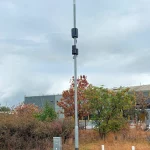ISP TalkTalk Identifies the Most Common Online UK Frauds
Broadband ISP TalkTalk and Action Fraud have today published the results of their latest joint research, which attempts to identify the most common online scams (within the last year) and the areas in the UK that are most frequently targeted. Fraud related to online shopping or auctions tops the table.
Overall the top 10 police force areas targeted most with these scams last year were as follows:: London Metropolitan – 20,094, West Mercia – 9,043, Thames Valley – 5,090, Greater Manchester – 5,058, Devon & Cornwall – 4,448, Hampshire – 4,105, Kent – 4,008, West Midlands – 3,964, Essex – 3,956 and West Yorkshire – 3,894. Naturally population size has a big part to play.
Donna Moore, Head of Scam Prevention at TalkTalk, says:
“Scams are becoming increasingly sophisticated crimes that affect the whole country on an unprecedented scale.
As an internet service provider, we feel it is our responsibility to ensure that the public are armed with the knowledge that may help them identify a scam and therefore not fall victim themselves.
We launched our Beat the Scammers education and awareness campaign in 2016 and have continuously improved our service, encouraging our customers to activate our protection tools, completely free of charge. Such tools include CallSafe, which provides customers with a simple way to avoid unwanted calls and enhance their call security. Furthermore, we’re proactively blocking over 700 million unwanted calls a year, and we continue to safeguard customers with the TalkTalk Nevers – a set of guidelines outlining information we will never ask customers for.
In addition to this, we regularly work alongside organisations such as Action Fraud to prevent our customers, and the wider public from being targeted by scammers.”
Sadly TalkTalk has itself in the past been the subject of several major hacks and related personal data breaches, which triggered quite a few fraudulent calls to subscribers. Since then they’ve put in a lot of effort to better protecting their customers and today’s update appears to form part of that on-going drive.
Advertisement
The Top 5 Most Common Online Frauds
1. Online Shopping and Auctions – 66,874 cases
Shopping and online auction fraud is where a product is either misrepresented online or not delivered, having been purchased through an internet auction site. Scammers will accept an electronic payment, but the goods will not arrive, and the sites are found to be bogus and untraceable.
TalkTalk scam prevention tip: “There are a number of things to look out for here. In terms of the product itself – is the deal too good to be true? The chances are that if it sounds too good to be true – it probably is. Lastly, look at reviews across a number of sources, such as Trustpilot, Feefo or Sitejabber, which aggregate customer reviews – this will mean you are not prone to fake reviews that may feature on their own site.”
2. Computer Software Service Fraud – 45,713 cases
Computer Software Service Fraud consists of cold calls from bogus ‘Tech Support’ teams claiming the victim’s computer has a bug. The scammer will ask to remotely access the victim’s computer to fix it, at a charge, or simply ask for credit card information to ‘validate the software’. The caller will claim to have fixed a bug that didn’t exist, while charging the victim a fee. Fraudsters often use the names of well-known companies to commit their crime, as it makes their communication seem more legitimate.
TalkTalk scam prevention tip: “Most reputable firms will not ask for payment when calling you. When in doubt – hang upand call back on the customer service number provided on the company’s website. TalkTalk is the first telecoms provider to create specific guidelines outlining information it will never ask for. The provider will never use a TalkTalk account number to prove a call is genuine, never ask for a full password, never ask for bank details to process a refund and never ask for money to be sent through services such as Moneygram or Western Union. Scammers do this to prevent transactions from being traced back to them.”
3. Email/social media hacks – 9,743 cases
Email or social media hacks are when a scammer gains unpermitted access to email or social media accounts. A common tactic is to contact a family member or friend and ask to lend money to an account that belongs to the scammer.
TalkTalk scam prevention tip: “The most important step to keep email or social media accounts secure, is to use strong passwords – and not the same password across all accounts.
“To create a strong password; simply choose three random words. Numbers, symbols and combinations of upper and lower case can be used to increase the strength. Make sure you can remember it though!”
4. Personal computer hacks – 6,004 cases
A personal computer hack is where a scammer gains access to a home computer connected to the internet. This access often comes from phishing emails, directing users to enter personal information at a fake website. Once they have gained access, they will look to access online banking or generally modify the computer in a way that makes it difficult for the owner to use.
TalkTalk scam prevention tip: “Sadly, common sense alone won’t protect your computer from hackers. You can look out for tell-tale signs phishing emails with things as simple as poor grammar, but you will also need to ensure your computer is kept updated, a good anti-virus software is installed and you use the latest version of your web browser TalkTalk customers can take advantage of our award-winning SuperSafe Boost which protects devices from a wide range of everyday online attacks.”
5. Extortion – 1,850 cases
Extortion, in this instance, is when a scammer gains access to private content, such as photographs, and demands money to be paid immediately, for said content, or it will be sent to family and friends or made public.
TalkTalk scam prevention tip: “The first step to avoid such a situation is not send anyone content you wouldn’t want to be shared further, even if you think you know the person really well. Otherwise, keep your computer secure with strong passwords and good anti-virus software.”
Mark is a professional technology writer, IT consultant and computer engineer from Dorset (England), he also founded ISPreview in 1999 and enjoys analysing the latest telecoms and broadband developments. Find me on X (Twitter), Mastodon, Facebook, BlueSky, Threads.net and Linkedin.
« Ofcom 2018 Study – Average Home Broadband Speeds Hit 46.2Mbps
















































Comments are closed